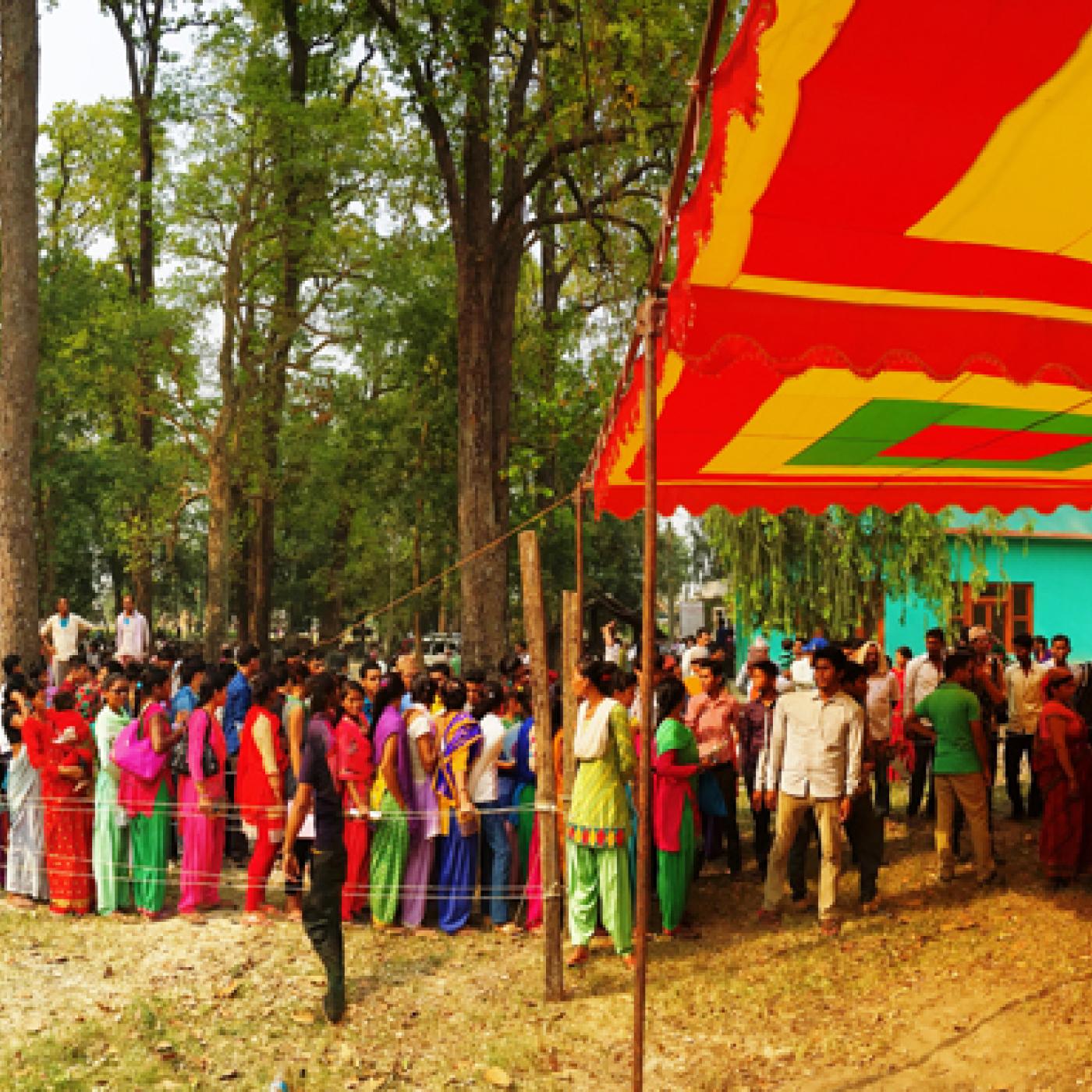Tools & Resources
Filter by
Type
Publication date
Language
Type
Publication date
Language
Election FAQ
Elections in Nepal: 2017 Local Elections
On May 14 and June 14, 2017, Nepali voters will go to the polls to elect their local representatives, with citizens from different provinces voting on different days.
News & Updates
Feature
Partnership with Election Management Bodies
In this Q&A, Manuel Carrillo Poblano, head of the International Affairs Unit of the INE, discusses IFES and the INE’s efforts to promote credible and transparent elections and the INE’s collaboration with EMBs around the world.
News & Updates
Feature
Celebrating IFES’ 30th Anniversary in Sri Lanka and Nepal
On January 27, IFES held an anniversary reception in Kathmandu, Nepal, where Sweeney welcomed current and former members of the Election Commission of Nepal, civil society, and representatives of the donor community. IFES has worked in Nepal since 1999, a period that included the 2006 end to a decade-long civil war, groundbreaking Constituent Assembly elections in 2008 and 2013, and the establishment of a new constitution in 2015.
News & Updates
Press Release
IFES Announces Winners of 2016 Photography Contest
Two compelling photographs depicting insightful moments of Election Day in India and voter registration in Nepal have won the top prizes of the International Foundation for Electoral Systems’ (IFES) 2016 Photography Contest. They were part of 10 photographs selected as finalists among the more than 100 images that were submitted to the democracy-themed competition.
News & Updates
Feature
Photo Gallery: IFES 2016 Photography Contest Winner and Finalists
An image of a person with a disability in India on his way to vote with the assistance of his son was selected as the Grand Prize winner in the International Foundation for Electoral Systems’ (IFES) 2016 Photography Contest. A photo of eager citizens in queue to obtain their citizenship cards and enroll on the Election Commission of Nepal's voter register at a mobile camp in Kailali district, Nepal was selected as the IFES Choice winner of the Photography Contest.
News & Updates
Feature
RightsNow! Disability Consortium Launches Resource Portal for Disability Rights Implementation
The Global Disability RightsNow! consortium, which the International Foundation for Electoral Systems (IFES) is a member, is launching a new resource website for disability rights advocates in Armenia, Kenya, Mexico, Vietnam and other places around the world.
Publication
Brochure/Fact Sheet
Factsheet on Electoral Provisions in Nepal’s New Constitution
On September 20, 2015, Nepal’s Constituent Assembly approved a new constitution, transitioning Nepal to a Federal Democratic Republic divided into seven provinces. IFES has developed a factsheet to provide an overview of how the new constitution will affect Nepal’s electoral process, including explanations of the electoral systems to be used for different elected bodies and positions, provisions to ensure representation of women and other marginalized groups, and guidelines on the delimitation of electoral constituencies.
February 18, 2016
News & Updates
Feature
RightsNow! Consortium Engages Disability Rights Communities in Mexico
At a training hosted in Mexico City from October 26-30, 2015, the International Foundation for Electoral Systems (IFES) joined RightsNow! consortium partners and the Mexican Coalition for People with Disabilities (Coalición México por los Derechos de las Personas con Discapacidad [COAMEX]) in conducting a leadership and advocacy training for members of the disability rights advocacy community in Mexico.
Election FAQ
Elections in Mexico: 2015 Legislative and Local Elections
On June 7, Mexican citizens will head to the polls to elect 500 members of the Chamber of Deputies (the lower house of Congress), state legislatures, local councils and Governors in some states.
News & Updates
Feature
Promoting Gender Inclusion with Nepal’s Election Commission
In the last decade, Nepal has made significant progress in promoting gender equality and women’s political participation, including adopting women’s rights-focused international and national instruments as well as a gender quota in the 2007 interim Constitution.










